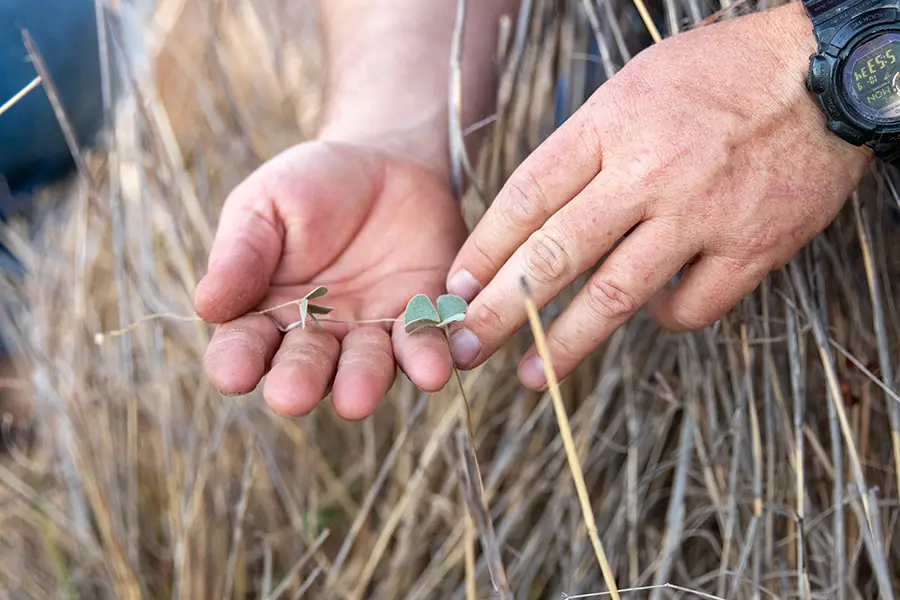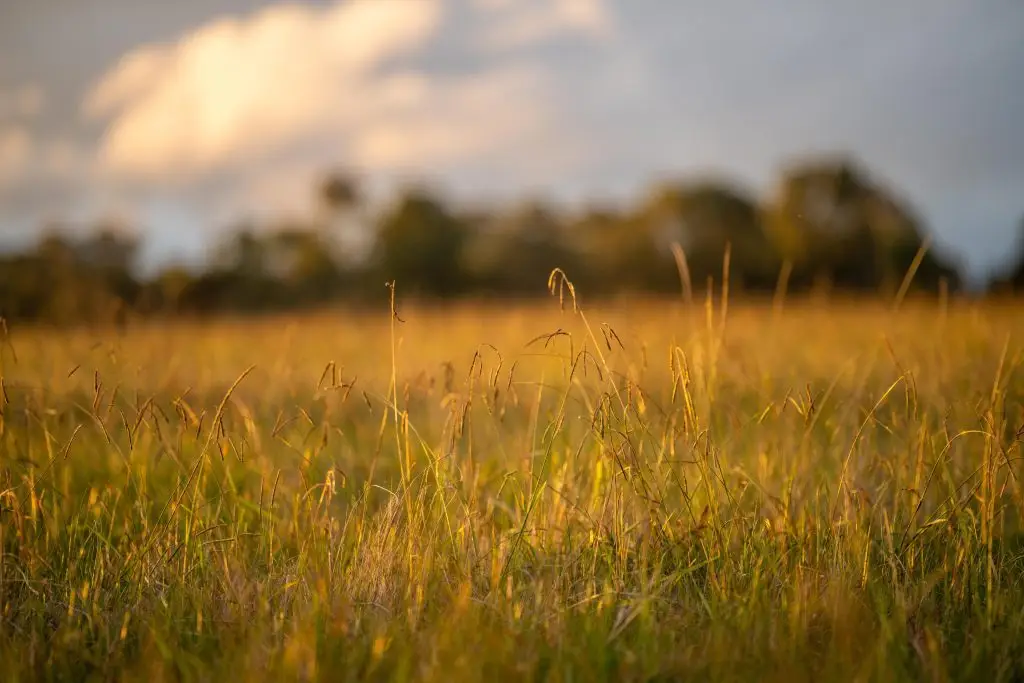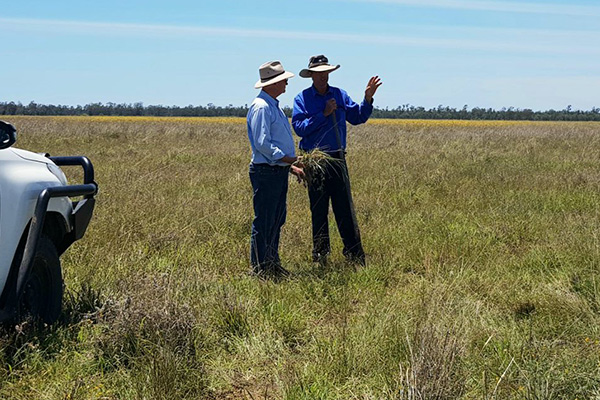
Dennis Donohoe, farm manager with Aminya Pastoral, is a seasoned producer with decades of experience, and his story is a testament to how even minor changes in farming practices can lead to significant improvements in productivity and land health.
Nurturing the Land, Securing the Future: We can help start your Soil Carbon Farming project.
Soil carbon farming goes beyond traditional practices, focusing on building healthy, carbon-rich soils. Think of it as investing in your land’s long-term health, using strategies like:
The Bottom Line: Soil carbon farming isn’t just good for the planet, it makes economic sense for farmers.
Ready to learn more? Contact us today and discover how soil carbon farming can benefit your operation.
1800 356 004.
Trevor Crook | General Manager


I am pleased to announce, RCS Grazing for Profit® and ExecutiveLink® graduates, Carly and Grant Burnham, North Burnett graziers, have received a record-breaking 94,666 Australian Carbon Credit Units (ACCUs) from the Clean Energy Regulator for their soil carbon farming project at Bonnie Doone QLD.
This marks the largest allocation for an individual project in Australia. They partnered RCS’ sister company CarbonLink on this 5,275-hectare initiative in 2016.
Terry McCosker | Founder RCS & CarbonLink
Natural landscapes play a crucial role in mitigating environmental risks and moderating climate extremes. They absorb and retain rainfall, reducing flood peaks and slowing runoff. Vegetation acts as an insulator and aids in transpiration, helping to moderate climate extremes. These functions are essential for maintaining stable and conducive conditions for agricultural and other forms of production.
Natural capital is fundamental in maintaining ecosystem services that are vital for the production of healthy food and fibre. This includes clean air generated through photosynthesis, pure water filtered by robust land, fertile soils formed by biological processes, and pollination conducted by various insects. By valuing and protecting these services, producers can ensure sustainable and high-quality outputs.
There's a growing recognition of the economic value derived from healthy natural capital. Food processors and consumers increasingly seek produce from farms that employ good environmental practices. This trend is creating new market opportunities, where governments and the private sector are developing systems to connect private investors and land stewards. These initiatives aim to facilitate positive outcomes in biodiversity and natural capital, leading to prosperity not just for individual producers but also for communities and businesses at large.
We’ve compiled a list of common soil carbon farming questions and their answers to provide you with quick and informative solutions.
If you can’t find the information you’re looking for, don’t hesitate to reach out to our dedicated support team for further assistance. Australia-Wide Free Call 1800 356 004.
The first step to profiting from a Soil Carbon project is registering your project with the CER. Then you will need to ensure you follow one of the methodologies and management practices approved by the CER and apply it to increase soil carbon from your baseline measurements.
Carbon levels will be measured in 3-5 years to check for increased carbon stored in your soil. If an audit confirms you have utilised the correct procedures, you will be eligible for payment for the carbon you have sequestered minus deductions.
One tonne of Soil Organic Carbon is equivalent to 3.67 tonnes of CO2. The Federal Government deducts a proportion of the ACCUs, depending on the permanence period and any relevant discounts. Once you are issued your ACCUs you are free to hold them, retire them (use them to offset your own emissions) or sell them. They are held in an account within the Australian National Registry of Emissions Units (ANREU), which ensures accurate accounting of the issue, trading and other transactions of ACCUs.
If you are interested in understanding more about Soil Carbon Projects, we recommend talking with the team at our sister company, CarbonLink™.
Carbon project aggregators coordinate multiple small carbon projects as part of a larger project to reduce overall costs. Although these aggregations can be complex to set up legally and commercially, as so many parties are involved, they provide a pathway for smaller-scale landholders to farm carbon.
Aggregation can be a good option for areas with high sequestration potential and producers dedicated to the appropriate farming methods. As the value of an ACCU increases and advances in technology reduce costs associated with project establishment, the size of a viable Carbon Estimation Area is likely to reduce, reducing the need for aggregation.
You can check if a Soil Carbon Projects is viable on your land by speaking with the team at our sister company, CarbonLink™.
One carbon credit anywhere in the world equals 1 tonne of carbon dioxide (CO2) equivalent (called CO2-e). One tonne of methane is roughly 25t CO2e, and one tonne of nitrous oxide is roughly 310 t CO2-e. This reflects that the other gases have greater heating capacity than carbon dioxide.
An ACCU is a unit issued by the CER into an account within the ANREU in exchange for carbon sequestered in a registered, audited project following strict methodology.
There are different carbon trading schemes worldwide, and although 1 unit will equal 1 tonne of CO2-e, they may have different monetary values depending on the integrity of the measurement and value placed on them by the market.
If you’re going to embark on the journey of carbon farming, it’s essential to get familiar with the terminology and acronyms:
If you’re interested in carbon farming, why not brush up on regenerative farming methods in Australia with a course by RCS.
Below you can download copies of recent papers that will build knowledge on all aspects of grazing systems and Natural Capital in an Australian context.

This paper tracks the progress of Cell Grazing in Australia from 1990 when it was first taught, to 1999, from 2 perspectives. The first is a model of an industry paradigm shift. The introduction of Cell Grazing to Australia has all the hallmarks of a paradigm shift at the industry level. It is following the classic pattern outlined by Kuhn (1970) and is well progressed to the point where it will be accepted as ‘normal science’ within another 10 years.

Time Control Grazing (TCG) has been described by McCosker (2000) and includes similar systems with different names such as Management Intensive Grazing (MIG), planned grazing, Adaptive Multi-Paddock grazing (AMP) and cell grazing. In the last 20 years, the industry has moved on with widespread adoption of grazing systems which incorporate a period of pasture rest, such as rotational resting and rotational grazing.

New Paper Coming Soon
To learn more about how to get started as a soil carbon farmer complete the form and one of our team will get in touch. Alternatively, you can free call us on 1800 356 004 and speak to a soil carbon specialist!
Profitable Paddocks is our educational newsletter sent to your email inbox every quarter.
Click the Bell for the latest blogs.

Dennis Donohoe, farm manager with Aminya Pastoral, is a seasoned producer with decades of experience, and his story is a testament to how even minor changes in farming practices can lead to significant improvements in productivity and land health.
Once you have ownership as to why planning is important, the next ingredient is to work out where and how you will do your planning. When you write something down you change your relationship with the content. I cannot emphasise enough the power of getting your thoughts and plans out of your head onto paper or the computer.
The season in SA and Tassie is particularly tight right now with little or no useful rain since early January and a generally failed 2023 spring prior to that. Right now, across southern Australia and much of the eastern NSW, you won’t need to drive far out into the countryside to see cattle and sheep grazing (and lying on) hay and silage trails lined across paddocks.
Martha Lindstad and partner Robert James are farm managers on ‘Karalee’, Enngonia NSW. Both have travelled different paths to being where they are. Martha is originally from Norway, growing up on a three hectare farm before travelling to New Zealand and eventually the Pilbara in Western Australia. It was here that she saw the benefits of sustainable farming for the country and livestock.
The Prince’s RCS mentor, Raymond Stacey, sees a strong future ahead for Simon and Laura. “The Drought Resilient Soils and Landscapes project is about supporting graziers to manage their country and businesses better,” Raymond said. “I see an operation here where they’re working hard on their planning and putting their plans into action to leave their country, business and people in better shape.”

Join our mailing list
